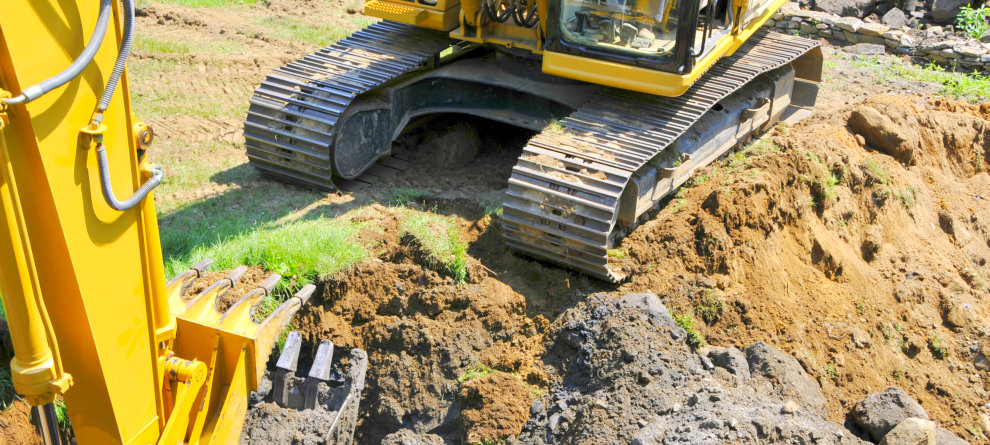Expert Septic Ohio - Relied On Septic Tank Experts in Ohio
Expert Septic Ohio - Relied On Septic Tank Experts in Ohio
Blog Article
Comprehensive Excavation Approaches: Understanding the Basics for Success
In the world of building and civil engineering, the importance of reliable excavation methods can not be overemphasized. The cautious planning, accurate implementation, and thorough focus to information needed in excavation projects demand a thorough approach that includes different fundamental aspects. From first soil analysis to the implementation of precaution and routine development tracking, understanding these core components is vital for attaining success in any type of excavation venture. Nevertheless, the real proficiency lies not merely in understanding these fundamentals yet in effortlessly integrating them to navigate the intricacies of excavation tasks with finesse.
Understanding Excavation Job Preparation

Effective excavation projects are improved the foundation of detailed and careful planning. The initial phase of any excavation job is the drawing board, where crucial choices are made that can significantly impact the outcome of the task. Throughout this phase, it is vital to gather all pertinent details concerning the site, including topographical surveys, dirt make-up, and any potential threats that may exist. Comprehending the job budget plan, timeline, and extent restraints is critical for developing a detailed excavation strategy that makes certain the task's success.
One secret element of excavation job preparation is the advancement of a thorough timeline that describes the series of deadlines, landmarks, and tasks. This timeline functions as a roadmap for the job team, permitting them to track progression and make required adjustments to make sure the job remains on schedule. Furthermore, a well-defined budget plan that accounts for all expenditures, consisting of devices leasing, labor expenses, and products, is important for staying clear of cost overruns and delays. By carefully thinking about all these factors throughout the preparation stage, excavation jobs can be executed efficiently and properly, resulting in effective results.
Dirt Evaluation and Website Assessment
Performing comprehensive dirt analysis and site evaluation is a critical step in the preparation phase of any excavation project. Soil evaluation entails determining the structure, framework, and properties of the dirt at the excavation site. This information is important for understanding the dirt's bearing ability, moisture content, and possibility for disintegration, which are vital consider identifying the excavation methods and equipment needed for the task.
Site examination goes beyond soil evaluation and incorporates a more comprehensive evaluation of the overall website conditions. This assessment consists of recognizing any type of possible dangers, such as underground utilities, ecological concerns, or unsteady terrain, that might affect the excavation procedure. By completely assessing the website, job managers can develop reliable excavation approaches that focus on safety and security, performance, and ecological protection.
Making use of innovative modern technologies like ground-penetrating radar, dirt tasting, and drone surveys can enhance the precision and performance of soil evaluation and website evaluation. Spending time and sources in these preliminary steps can eventually conserve time and avoid pricey delays or problems during the excavation procedure.
Equipment Selection and Application
Reliable excavation jobs count greatly on tactical devices option and application to make sure optimum efficiency and efficiency. Choosing the right tools for the work is vital in making best use of performance and reducing downtime. Elements such as the sort of soil, depth of excavation, and job range play a significant role in establishing one of the most ideal tools for the job at hand.

In enhancement to picking the suitable devices, proper utilization is essential to project success. Operators needs to be educated to manage the equipment securely and successfully - lancaster trenching. Regular maintenance checks and timely repairs help prevent malfunctions and make certain regular efficiency throughout the task
Safety Steps and Regulations Conformity
In the world of excavation projects, prioritizing safety and security procedures and conformity with policies is extremely important to making sure a safe and legally audio functional environment. Precaution more helpful hints include a series of techniques, consisting of carrying out extensive site assessments, carrying out proper signs and barriers, and giving sufficient security training for all personnel entailed in the excavation process. Adherence to laws, such as OSHA requirements in the USA, makes sure that the excavation project satisfies the needed standards to safeguard employees, bystanders, have a peek here and the surrounding setting.

Tracking Progress and Adjusting Techniques
Exactly how can predict managers effectively track the improvement of excavation projects and adapt their approaches as necessary to enhance outcomes? Surveillance development is necessary for ensuring that excavation jobs remain on track and fulfill due dates.

Conclusion
To conclude, grasping the basics of extensive excavation approaches is vital for the success of any type of job. By recognizing job preparation, assessing dirt and website problems, picking suitable equipment, following security laws, and checking progress, task managers can make sure a effective and smooth excavation process. Applying these approaches will lead to successful outcomes and decrease possible threats or obstacles during the excavation project.
The preliminary phase of any kind of excavation job is the planning stage, where essential choices are made that can dramatically influence the end result of the task. Comprehending the task range, spending plan, and timeline restrictions is essential for creating a comprehensive excavation strategy that makes sure the project's success.
Just how can predict supervisors properly track the innovation of excavation tasks and adapt their strategies appropriately to enhance results? By closely keeping an eye on progress and being prepared to adjust strategies, task managers can enhance the overall success webpage of excavation projects.
By recognizing project preparation, analyzing dirt and website conditions, choosing appropriate equipment, complying with safety regulations, and keeping an eye on progress, job managers can make certain a smooth and effective excavation process.
Report this page